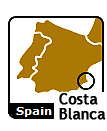The Buying ProcessSample article from Living Spain magazine of July/August 2002You've seen the property of your dreams. What exactly do you have to do to get hold of it? Buying a property in Spain free of debts, mortgages and other encumbrances requires thorough investigation before signing any document. The most important of these are: SERVICE CHARGESThe Comunidad de Propietarios, the Community of Owners, is the legal body which administers the apartment, building or urbanisation in which the property is located. Any owner is obliged to contribute to the community's expenses for the maintenance of common facilities and services such as lifts, gardens, swimming pools, security etc. Normally, the Cuotas de comunidad, the community charges, are paid monthly or quarterly. It is essential before, buying to ensure that the seller is up-to-date with community payments. Ask the seller (according to the "Ley de Propiedad Horizontal" (article 9. I.E-4)) to provide the certificate of the Community which shows that there are not debts. This document must be attached to the Public Document of Purchase, the Escritura de Compraventa. If there are outstanding charges, ensure the amount is retained on completion of the purchase.WATER SUPPLYIt is also important that the seller is upto-date with water payments. If not you may find your water supply cut off and you will be obliged to pay the outstanding debts to be re-connected again. Sometimes the water is included in the community charges.ELECTRIC SUPPLYBasically, the same applies to electricity supply as to water. Before you buy, you should therefore verify whether the seller has outstanding debts.REAL ESTATE TAX (I.B.I.)Real estate tax (Impuesto Municipal Sobre Bienes Inmuebles LB.L) is an annual municipal tax which is levied on the officially assessed value of the land and the construction. Although you start paying from the date of purchase, it is essential to check whether the receipts for the proceeding five years have been paid by the seller up-to-date.LAND REGISTRYRegistro de la Propiedad, the Spanish Land Registry is very similar to the Land Registry in the UK. The purpose of the Land Registry is to create an instrument which protects the interests of the owner and third parties. The complete history of any property can be found in the Land Registry and any title or right or charge which may exist against a certain property can be inspected. Whoever is registered as the owner at the Land Registry is deemed to be the legal owner, of the property. Therefore, the rule is: Never buy from someone who is not registered as the owner at t e Lan Registry because only the owner registered at the Land Registry can prove that s/he is the legal owner of the property and only s/he can guarantee to transfer the property to you as the legal owner. It is therefore evident that the most important step before signing any contract is to obtain a search of the Land Registry with regard to the property you want to buy. This search, the Nota Simple, shows all previous transactions and indicates who is the legal registered owner of a property and whether the property has any incumbrances, mortgages or liens registered against it or is subject to any other legal procedure.COMPLETION OF THE PURCHASE DEED AND REGISTRATIONThe Esciltura de Compraventa. Once you have checked the Land Registry and are confident that the property is free of outstanding debts and ineumbrances, you can then reach an agreement with the seller on the terms of the transaction. To complete the transaction and become the legal owner, the buyer and the seller must execute a Public Document of Purchase called an Escritura de Compraventa before a Spanish Notary Public. A private purchase agreement creates rights and obligations between the seller and buyer. This is a private agreement and does not transfer the legal ownership in the property even if the buyer has paid the complete purchase price to the seller. Note, a private agreement cannot be registered at the Land Registry. If you will not be able to attend completion in person in Spain, you can grant a Power of Attorney to a person of your choice to act on your behalf to execute the Escritura.REGISTRATION IN THE LAND REGISTRYThe signing of the Escritura de Compraventa transfers the ownership of the property. However, bearing in mind what has been stated above, it is clear that the Escritura alone does not guarantee your title to the property, To be enforceable against all other persons the Escritura must be registered in the Land Registry. This must be done immediately after its execution. Since it is only registration at the Land Registry which is proof of ownership, there is no point in "holding the deeds". The Escritura shows that you purchased the property and in order to sell, the Escritura as such is not needed. A seller must prove that he is the registered owner at the Land Registry. His own Escritura is not needed. The one in his possession is only a certified copy anyway, as the original is always kept by the Notary.FEES AND TAXESTaxes and fees have to be paid at completion of the Escritura or the Land Registration cannot take place. Depending on the type of property and its location, the total amount of fees and taxes is between 8% and 10% including lawyers fees. The following fees and taxes will be payable:NOTARY'S FEESThe Notary's fees for the execution of the Escritura are fixed by a sliding scale established by law.LAND REGISTRY FEESFor the registration of the Esc tura at the Land Registry, again a sliding scale is applicable dependant on the purchase price. If the property is subject to a mortgage to be cleared by the seller, it is important to ensure that the costs of clearing the mortgage are paid by the seller.TRANSFER TAX (Impuesto de Transmisiones Patrimoniales)If the seller is a private individual and not a property developer, the sale is subject to a transfer tax of 6% levied on the purchase price as declared in the Escritura. In Spain it is common practiceto declare a lower price to pay a lower amount of transfer tax. To avoid this practice, the tax authorities have taken a number of measures and nowadays the transaction is checked and the value of the property deemed superior to the amount declared in the Escritura. If this happens, a supplementary tax is levied. If the seller is a company or developer, VAT (Impuesto sobre Valor A adido) at the rate of 7% will be levied on the purchase price plus a stamp tax at 0.5%.PLUSVALIA TAXThis is a municipal tax on the increase in urban land value, The Plusvalia is based on the assessed increase in the official value of the property from the date of the previous sale to the date of the current sale. The amount payable varies widely and also depends on the location of the property and the applicable scale. The Plusvalia is the responsibility of the seller.CAPITAL GAINS TAXCapital Gains Tax must not be confused with the above-mentioned Plusvalia Tax. Capital Gains Tax is not based on the official value of the property like the PIusvalia Tax, but on the real value. The Capital Gains Tax is based on the increase in the purchase price and the sales price. Formerly no non-resident seller declared and paid this tax. In order to guarantee that non-resident sellers pay this tax, Spanish law now provides that in the case of a nonresident seller transferring a property located in Spain, the purchaser is obliged to withhold 5% of the purchase price on account of the seller's potential tax liability and deposit this retention in the tax office. Restitution by the tax authorities of the whole or part of the 5% will take place after the seller has declared and paid the tax. Clearly, the Capital Gains Tax falls on the seller. However, if the buyer fails to retain and deposit the 5% of the purchase price and the seller does not pay the amount due, the tax authorities can levy this sum on the property. It is essential that any buyer always deducts 5% of the purchase price when buying. Readers are advised to seek professional advice at an early stage when purchasing proper in Spain. Information courtesy of ALCALA & ROJAS ABOGADOS, Carlos Alcala in Marbella, Spain on 00 34 95 282 14 72, RUSSELL-COOKE, Richard Frimston in London on 020 8789 9111, LANSBURY-GARDINER, Paul D. Gardiner in London on 020 7381 6262Back to Advice Page |







